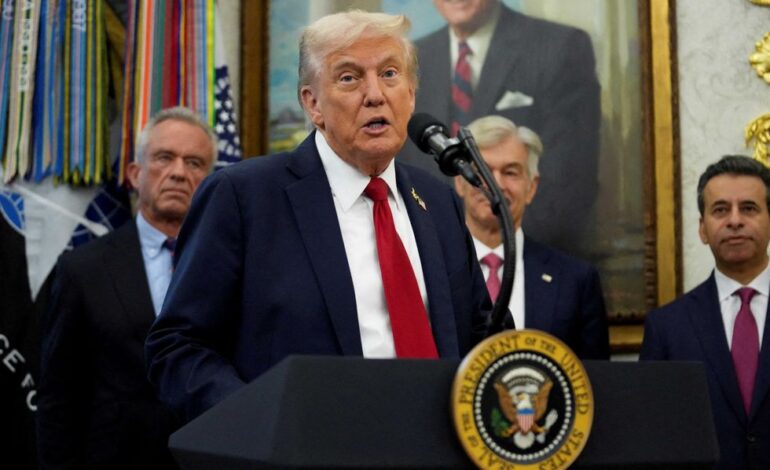Media Must Confront GOP Falsehoods to Restore Political Truth

Political discourse in the United States has shifted dramatically over the years, particularly in terms of honesty and integrity among elected officials. A growing concern among commentators is the Republican Party’s current approach, which many argue relies heavily on misinformation. This has sparked debates about how the media and political leaders should respond to this challenge.
Reflecting on his political journey, a commentator noted his early support for Republican Barry Goldwater at the age of 13. Despite strong disagreements with Goldwater’s stance on the Civil Rights Act, he appreciated Goldwater’s consistency in beliefs, stating that the former senator rarely lied to the public. In contrast, the current political climate features a Republican Party where falsehoods are prevalent. Many politicians have adopted a strategy of deliberate deception, which undermines public trust and complicates political engagement.
Historically, Republican leaders such as Ronald Reagan and George W. Bush employed tactics that blurred the lines of truth without outright lying. For instance, Reagan’s assertion that tax cuts would “pay for themselves” was misleading. Similarly, Bush’s claims regarding weapons of mass destruction in Iraq relied on ambiguous intelligence. These examples illustrate a pattern where political messaging often contained elements of truth, albeit wrapped in exaggeration.
The turning point appears to have occurred with the presidency of Donald Trump. From his first day in office, when he made false claims about his inauguration crowd size, Trump set a new standard for political dishonesty. According to a report by The Washington Post, Trump made over 30,000 verified false statements during his presidency, a trend that has continued among Republican representatives. The party’s messaging has shifted to include outright lies, such as the baseless claims of widespread voter fraud in the 2016 and 2020 elections.
Republican rhetoric has also included accusations that Democrats support extreme measures, such as “open borders” and an expansion of government programs. For example, claims about hiring “87,000 new IRS agents” to target American citizens have been disseminated despite lacking factual basis. These tactics not only mislead the public but also aim to instill fear and distrust in government institutions.
The media’s response to this wave of misinformation has been scrutinized. Critics argue that mainstream outlets often shy away from labeling statements as lies. The reluctance to use direct language diminishes the impact of their reporting and allows falsehoods to proliferate. This hesitation affects public perception, making it challenging for citizens to discern truth from fiction.
Recent comments from Senate Minority Leader Chuck Schumer marked a departure from this trend. In a candid moment on national television, Schumer referred to certain Republican claims as “effing lies,” urging more straightforward discourse. Such statements could signal a shift toward greater accountability and transparency in political communication.
As the political landscape develops, it is crucial for both media and politicians to address the current state of misinformation. The prevalence of false statements presents a significant challenge to democracy. By confronting these issues directly, the media can play a vital role in restoring public trust and promoting informed political participation.
In conclusion, the responsibility lies with both political leaders and the media to navigate the intricacies of modern political discourse. The need for truth and accountability has never been more pressing, and addressing the issue of misinformation is essential for the health of democracy in the United States. As the situation evolves, ongoing vigilance and commitment to factual reporting will be necessary to counter the distortions that threaten to undermine civic engagement.






